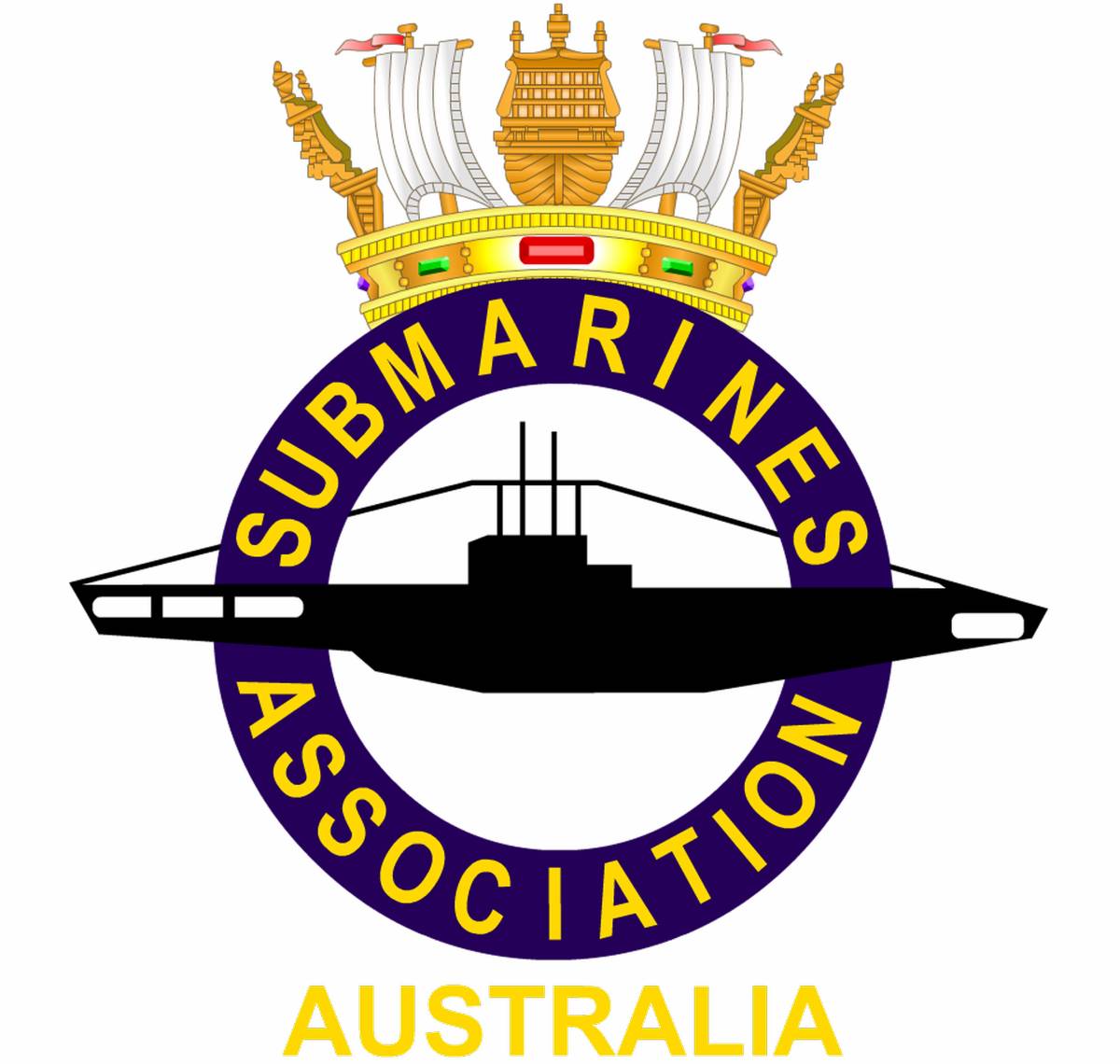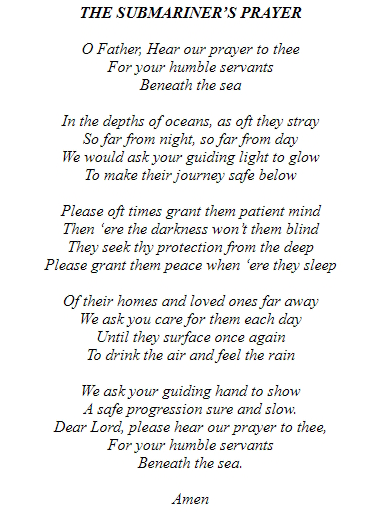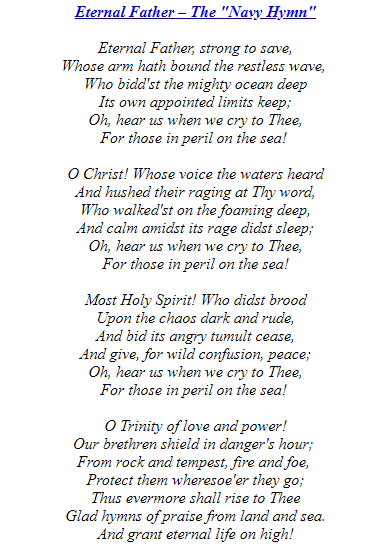

Submarines
Association
Australia


|
|
SubmarinesAssociationAustralia |
|
|

|

|

|
Footprints in the sand
One night I had a dream. I was walking along the beach with the lord, and across the sky flashed scenes from my life. In each scene I noticed two sets of footprints in the sand, one was mine and one was the Lord's.
When the last scene of my life appeared before me I looked back at the footprints in the sand.
To my surprise I noticed that many times along the path of my life there were only one set of footprints.
I noticed that it was at my lowest and saddest times in my life. I asked the Lord about it:
"Lord, you said that once I decided to follow you, you would walk with me all the way, and yet I notice that during the most troublesome times in my life there is only one set of footprints.
I do not understand why you left my side when I needed you most". The Lord replied "My precious child, I never left you during your times of need. Where you see only one set of footprints I was carrying you."
The "Navy Hymn" is Eternal Father, Strong to Save. The original words were written as a poem in 1860 by William Whiting of Winchester, England, for a student who was about to sail for the United States. The melody, published in 1861, was composed by fellow Englishman, Rev. John Bacchus Dykes, an Episcopalian clergyman. The hymn, found in most hymnals, is known as the "Navy hymn". Eternal Father was the favorite hymn of President Franklin Delano Roosevelt and was sung at his funeral in Hyde Park, New York, in April 1945. It was also played by the Navy Band in 1963 as President John F. Kennedy's body was carried up the steps of the U.S. Capitol to lie in state. Roosevelt had served as Secretary of the Navy and Kennedy was a PT boat commander in World War II.